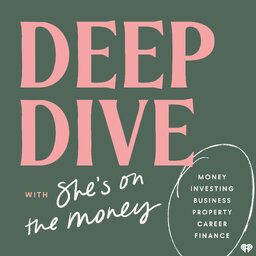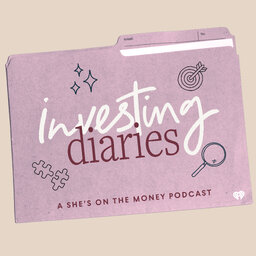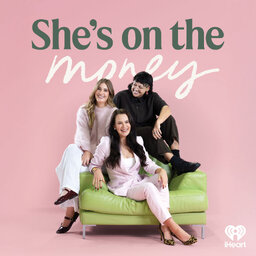How Victoria Devine Went From Money Mess to Millionaire
Think you're too behind to fix your finances? Victoria Devine was once right where you are. Before she was a best-selling author, business owner and the voice behind Australia’s number one money podcast, Victoria was financially stuck, overwhelmed, and winging it hard.
In this episode, Bec puts Victoria in the hot seat to unpack her actual money journey… from the early paydays and panic-spending, to the moment she realised something had to change, and what happened next.
Victoria shares:
💸 The $40k debt moment that made her go, “OK, something has to change”
💸 How ADHD shaped her money habits and the systems that actually helped
💸 The mindset shift that completely changed her relationship with money
💸 What to do when you’re spiralling or just feel totally stuck
💸The one thing she’s seen every financially successful person do
If you’ve ever felt behind, like you’re “just not good with money,” or that you’ve already made too many mistakes, this one’s for you.
Want to start building wealth? Our Investing Masterclass is now open for enrollments... come join us here! Starts April 1.
Acknowledgement of Country By Natarsha Bamblett aka Queen Acknowledgements.
The advice shared on She's On The Money is general in nature and does not consider your individual circumstances. She's On The Money exists purely for educational purposes and should not be relied upon to make an investment or financial decision. If you do choose to buy a financial product, read the PDS, TMD and obtain appropriate financial advice tailored towards your needs. Victoria Devine and She's On The Money are authorised representatives of Money Sherpa PTY LTD ABN - 321649 27708, AFSL - 451289.
In 1 playlist(s)
She's On The Money
Australia’s #1 finance podcast. Ready to take control of your money without the stress (or boring le…Social links
Follow podcast
Recent clips

Why Owning Property Isn’t Always the Safety Net You Think... And the Relationship Red Flag That Has Us Concerned
27:32

The Questions Everyone Has About Investing in the Share Market, Finally Answered
49:57

Investing Diaries: How She Turned Early Investing Mistakes Into a $100k Portfolio
36:43
 She's On The Money
She's On The Money